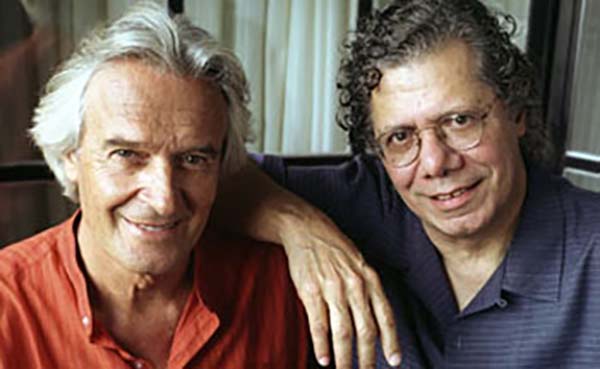
by Tim Owen
December 04, 2008
/ LIVE
At the end of a set of such finely judged music, I was as thrilled to be in the room with these five guys as they were themselves
I should confess at the start that I had considered not attending this concert. Although I’m a big fan of McLaughlin’s music from his debut Extrapolation through to the Mahavishnu Orchestra recordings, I’ve been less than enthusiastic about some of the subsequent Jazz/Rock fusion with which he has been associated. I loved Chick Corea’s early ECM recordings, but Return To Forever left me cold when I first heard them 20-odd years ago, and I’ve not gone back. I saw Garrett towards the end of his tenure with Miles Davis, but that was an equally distant memory. The other musicians I know mostly as session players of repute. When I read that Modern Drummer’s readers have voted Vinnie Colaiuta ‘Drummer of the Year’ 18 times my heart sank. I’m not overly keen to witness technical prowess at the expense of music. Fusion hell seemed a distinct possibility.
The set was full of tribute to Miles Davis. It opened with a tumble through one of Miles’ favourite standards, Stella By Starlight, took in an appropriately aggressive Dr. Jackle, and encored with In A Silent Way/ It’s About That Time. The rest of the set was comprised of two new pieces by Corea (The Disguise and Hymn To Andromeda) and three of McLaughlin’s latest offerings: a frenetic Raju from Floating Point, plus New Blues Old Bruise and Señor CS from Industrial Zen.
At 36, Christian McBride may be the junior member of the band, but he has real jazz pedigree (with Herbie Hancock and Pat Metheny among others); add a twist of pop, soul, and funk sessions and this experience makes him a natural to balance out the rhythm partnership with Colaiuta, who has previously performed with both Chick Corea (Akoustic Band) and John McLaughlin (Industrial Zen) but is best known for his work with Frank Zappa and Sting, among countless others. Hardly a ‘Jazz’ drummer then; but as you might expect of someone who has recording credits with both Herbie Hancock and Megadeath, he is incredibly versatile. Only once, in the gentlest closing moments of a partly arco contrabass solo by McBride, was his touch just a shade too heavy. But for powerhouse Jazz/Rock fusion, Colaiuta couldn’t be bettered. It’s a style of music that can be overbearing, but McBride and Colaiuta combined power and subtlety to make the music breathe.
Kenny Garrett recorded and toured with Miles Davis from 1987 to the trumpeter’s death in 1991, but his occasional affinity for Asian music (as demonstrated in his 2006 recording Beyond the Wall) perhaps better explains the closeness he exhibited with McLaughlin, the two often standing shoulder to shoulder to harmonise.
McLaughlin seemed ill at ease almost throughout. His interjections were often terse and jagged, as if attempting to carve a space in the interplay. Anyone hoping for him to really let rip were to be disappointed; with the odd brilliant exception, his contributions never really caught fire. It was left to Garrett to really push his featured solos to intensity, stoked by Colaiuta. Their shared moments were the revelations of the night, and provided some of the highlights of the set. There was no real grandstanding from anyone, and arguably McLaughlin’s reticence was in keeping with the prevailing mood of camaraderie, but even during the genial onstage banter that punctuated the set, McLauglin seemed less at ease than his band mates.
Corea also restrained from grandstanding, but this was more to be expected since his style is a type of Jazz baroque, equally effective in and filling out melodic intervals with lyrical motifs as when playing more rhythmically. When he did stretch out however he hit hard and percussively, his left and right hands independently dropping bombshell note clusters and adding coloration. To watch him was a revelation.
The closing Silent Way variation was what probably passes for ‘loose’ in this company, and retained none of the shimmering mystique of the original, but frankly, who cared? At the end of a set of such finely judged music, I was as thrilled to be in the room with these five guys as they were themselves.
blog comments powered by Disqus